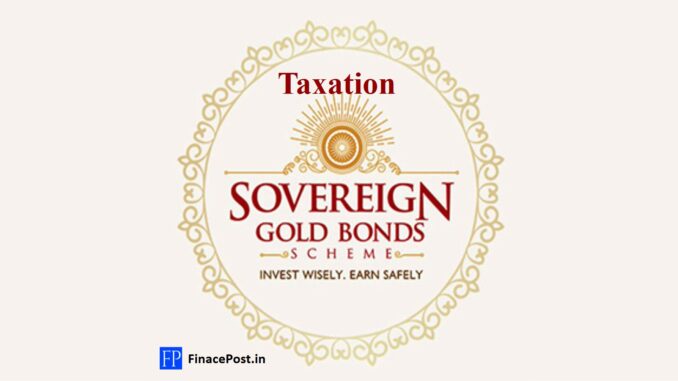
Last updated on May 9th, 2022 at 05:39 pm
TAXATION OF SOVEREIGN GOLD BOND
Sovereign Gold Bond, more popularly known as SGB, is a unique and different way of taking exposure in gold without actually worrying about the challenges of investing in physical gold. It offers various benefits like independent pricing, purity, safety, regular income, etc. However, what makes it more lucrative is the tax benefit it offers to the investors. With the help of this article, let’s try to understand the taxation of the Sovereign Gold Bond.
Interest Income
SGB offers the regular interest income to the investor. Currently, the rate of 2.5% p.a. is offered on a half-yearly frequency. As per Section 193 (iv) of the Income Tax Act, 1961 no tax should be deducted on interest paid on government security. Hence the withholding tax (TDS) is not applicable to interest income. However the interest income chargeable tax as per the normal income tax slab applicable to each bondholder.
Refer> Can the SGB be gifted? | Can the SGB be used as collateral security?
Capital Income
(I) If SGB is sold/traded before the time of redemption
- Short Term Capital Gain (STCG): If SGB is held for less than three years it will fall under the category of a short-term capital asset. Any gain/loss arising out of the sale of such short-term capital assets shall generate a short-term capital gain. Hence STCG arising out of SGB will be chargeable to income tax as per the normal income tax slab rates.
- Long Term Capital Gain (LTCG): If SGB is held for more than three years it will fall under the category of a long-term capital asset. Any gain/loss arising out of the sale of such long-term capital assets shall generate a long-term capital gain. Hence LTCG arising out of SGB will be chargeable either @ 10% without indexation benefit or @ 20% with indexation benefit.
(II) If SGB is redeemed at the time of redemption
As per Section 47(viic) of the Income Tax Act, any capital gain earned on redemption of these bonds is exempt from taxation to an individual. The exemption is available only to individual taxpayers and not to other categories like HUF, trusts, etc.
The option of prematurity of these bonds from the 5th year is available at each interest payment date. The section is silent as to whether capital gain on pre-mature redemption is exempt or not. Considering that separate terminology is used for early redemption (pre-mature redemption), in the author’s view the exemption is available only in case bonds are held till redemption (8th year).
There can also be an interpretation issue as to whether all redemption gains (realized in the 8th year) are exempt or the exemption is available only in case bonds are held for the full 8 years. It may happen for taxpayers when bonds are purchased in the secondary market post-issue date and held till the time of final redemption. Considering the discussion in the above para and with the fact that these bonds are promoted in lieu of physical gold investment, in the author’s view the exemption is available only if the bonds are held for the full 8 years.
Considering that LTCG as the time of maturity is exempt, any long-term capital loss incurred on SGB cannot be set off against other LTCG.
Conclusion
The tax treatment discussed for LTCG on SGB above is distinct as compared to taxation of physical gold, Exchange Traded Fund (Gold ETF), or gold mutual fund investment. I hope the above article will help my readers to under the tax treatment of these bonds and they will actively take benefit of this asset class in their overall portfolio construction.
Related Posts
- TAXATION OF SOVEREIGN GOLD BOND - 15/05/2021
Disclaimer: The above content is for general info purpose only and does not constitute professional advice. The author/ website will not be liable for any inaccurate / incomplete information and any reliance you place on the content is strictly at your risk.
Follow us on Social Media by clicking below
Follow @financepost_in
Be the first to comment